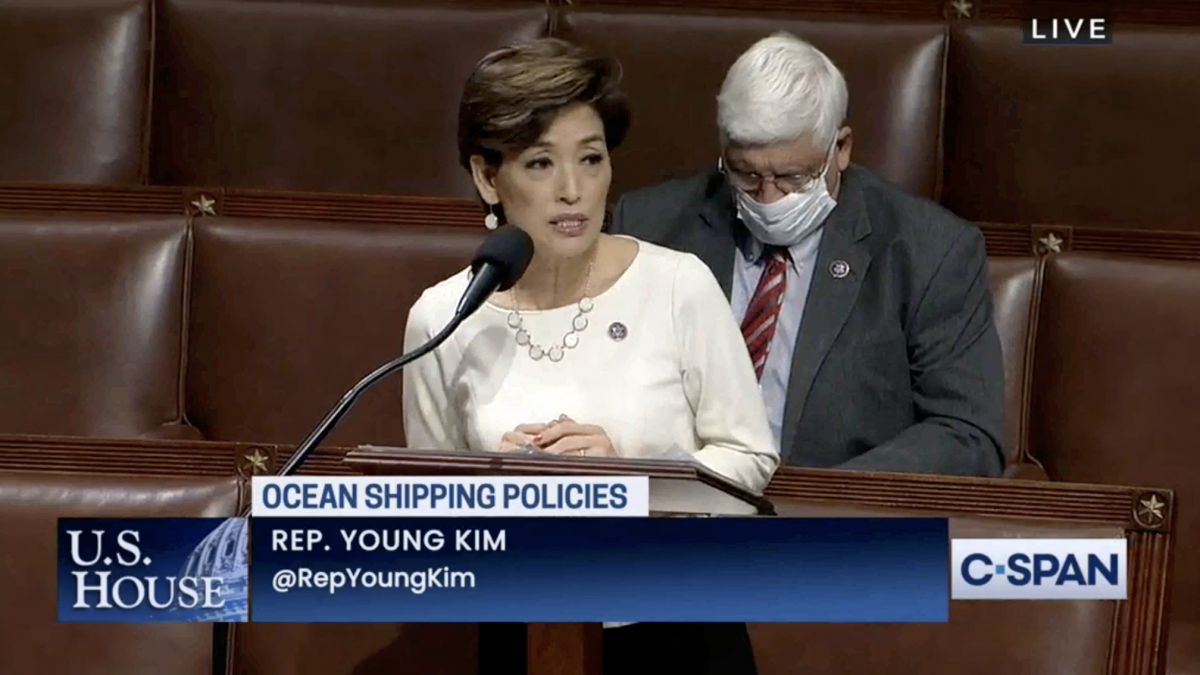Washington, DC – Yesterday, the Ocean Shipping Reform Act was signed into law. This bipartisan, bicameral bill aims to update our shipping laws to ensure the Federal Maritime Commission supports U.S. exports, promotes reciprocal trade practices and establishes fair practices for carriers.
Rep. Kim cosponsored the House version of this bill, which would help address the supply chain crisis caused in part by container ship bottlenecks at the San Pedro Port Complex in Southern California.
“American workers, families and small businesses continue to be burdened by supply chain disruptions made worse by container ship bottlenecks and higher shipping costs. We must take concrete steps to update our shipping laws and support our U.S. manufacturers and others exporting goods overseas,” said Kim. “I’m proud to cosponsor the bipartisan Ocean Shipping Reform Act to promote fair, reciprocal trade practices to address our supply chain backlog and support small businesses, farmers and manufacturers. I’m glad we could get this across the finish line and will continue to do all I can to address our supply chain crisis and get our economy back on track.”
“For the last year, Congress has been dedicated to pushing the Ocean Shipping Reform Act (OSRA) across the finish line,” said Rep. Dusty Johnson (R-SD). “Our bill addresses longstanding issues with our supply chain and puts an end to the unreasonable actions of ocean carriers that continue to return to foreign ports empty while American exports are stranded at the dock. There’s much to be done about the supply chain and inflation, but OSRA will provide much needed relief. I’m grateful for the work of Congresswoman Kim on this important legislation.”
Rep. Kim supported the passage of the House version of the bill on December 8, 2021 and spoke on the House floor in support of the bill. She also supported the passage of the Senate version of the bill on June 13, 2022.
In December 2021, Rep. Kim led a letter to House leadership in support of creating a Bipartisan Select Committee on the Supply Chain Crisis.




